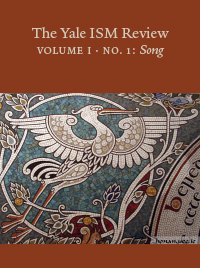Don E. Saliers
She seemed to be nearing her last breath. The family had gathered. Then, unprompted, her young granddaughter started singing “The Lord’s my shepherd, I’ll not want” to the old Scottish tune. Suddenly Psalm 23 was on her lips and the room filled with sung prayer.
This is one of the profound dimensions of singing the psalms: when they become the language of the heart, all of life can be sung. The trust, the praise, the comfort are here, but so also the lament, the trembling, and the anguish. Psalms provide for us a language that addresses God with the whole of life. They are the language of the soul made audible.
Whether it is “Out of the depths,” or “Make a joyful noise,” or “Create in me a clean heart, O God,” these ancient scriptural texts are always now: this feast, this fast, this grief, this gathering. The human body and the human spirit are given over to the Holy One who hears us in season and out of season. In that sense, the Psalter always lies in wait for us to discover anew the divine prompting.
Yet the psalms are also given to faith communities as discipline and rehearsal. Both are required for maturation of life with God. The psalms discipline us to all the great themes of scripture: creation, covenant, sin and struggle, instruction, hope, and the vision of a redeemed world. We learn to sing and pray over time even when we don’t “feel” exactly what the texts image. This is part of the mystery: we are called to rehearse for what we don’t fully understand about our world, the divine promises, and ourselves.
Like learning to play an instrument or learning to love deeply, learning to sing the world and our lives to God takes time. Sometimes the “music” comes naturally, but it often takes a long time before the psalms begin to sing us. The multiple musical forms given to the larger Jewish and Christian traditions blessedly come to our aid. Various traditions are more at home with some forms: metrical, responsorial, antiphonal, chant, improvisational, and through-composed. (Think here of the glorious tradition of choral anthems.) If we are fortunate, we may be able to sing the psalms in all these forms, thus liberating — even in the same psalm — multiple layers of meaning and relevance.
In my own experience as musician and as member of the assembly, I especially treasure how singing the psalms opens the emotional range of Christian faith. Sharing psalms, even in the simplest of musical settings, puts me in solidarity with others who also know the broken heart, the angers and fears, as well as unbounded joy and thanks. A community thus created also begins to sense that we are actually part of the greater chorus of the whole of creation: “Let everything that breathes, praise the Lord.” To sing and make music, no matter how humble, is a gift. Thus we render the exchange gift back to God — singing our lives and our world to the true Source of life and world.
 Don E. Saliers is Cannon Distinguished Professor Emeritus of Theology and Liturgy at Emory University. He has served as president of the North American Academy of Liturgy and the Society for Christian Spirituality. Among his many publications are Worship As Theology and A Song to Sing; with his daughter Emily Saliers he coauthored A Life to Live. An active musician, he is organist/choirmaster at Emory’s Cannon Chapel, and teaches in the summer sessions at the Yale Institute for Sacred Music, as well as leading seminars and retreats.
Don E. Saliers is Cannon Distinguished Professor Emeritus of Theology and Liturgy at Emory University. He has served as president of the North American Academy of Liturgy and the Society for Christian Spirituality. Among his many publications are Worship As Theology and A Song to Sing; with his daughter Emily Saliers he coauthored A Life to Live. An active musician, he is organist/choirmaster at Emory’s Cannon Chapel, and teaches in the summer sessions at the Yale Institute for Sacred Music, as well as leading seminars and retreats.
____
This article is licensed under a Creative Commons Attribution 4.0 License.
Recommended Citation: Saliers, Don E. (2014) “All of Life can Be Sung,” The Yale ISM Review: Vol. 1: No. 1, Article 11.
Available at: https://ismreview.yale.edu/
View article as a PDF: All of Life Can Be Sung
